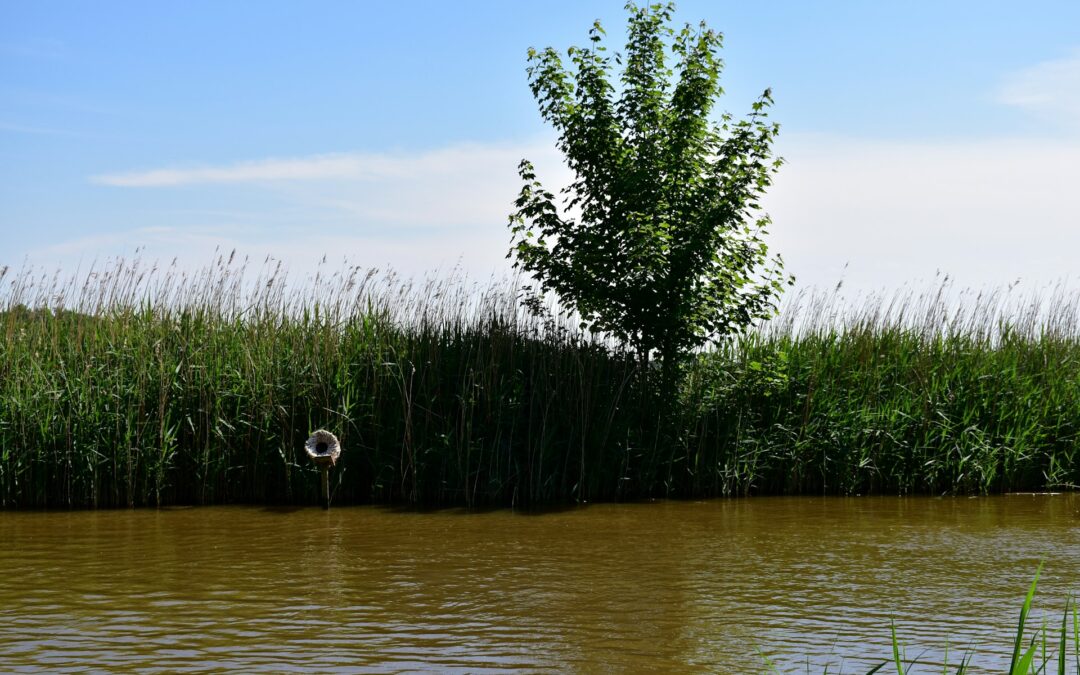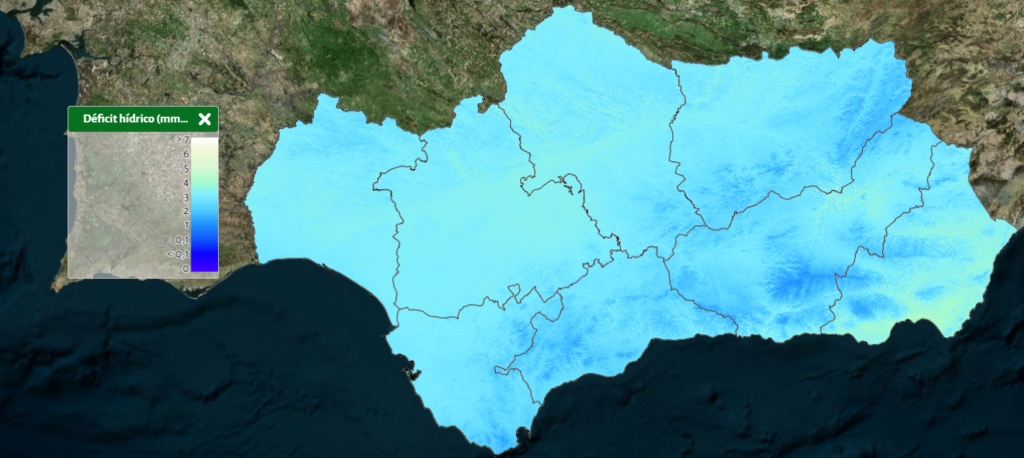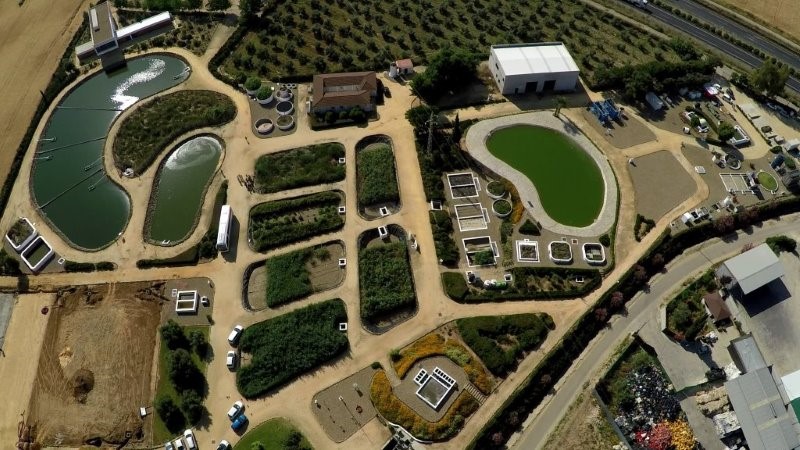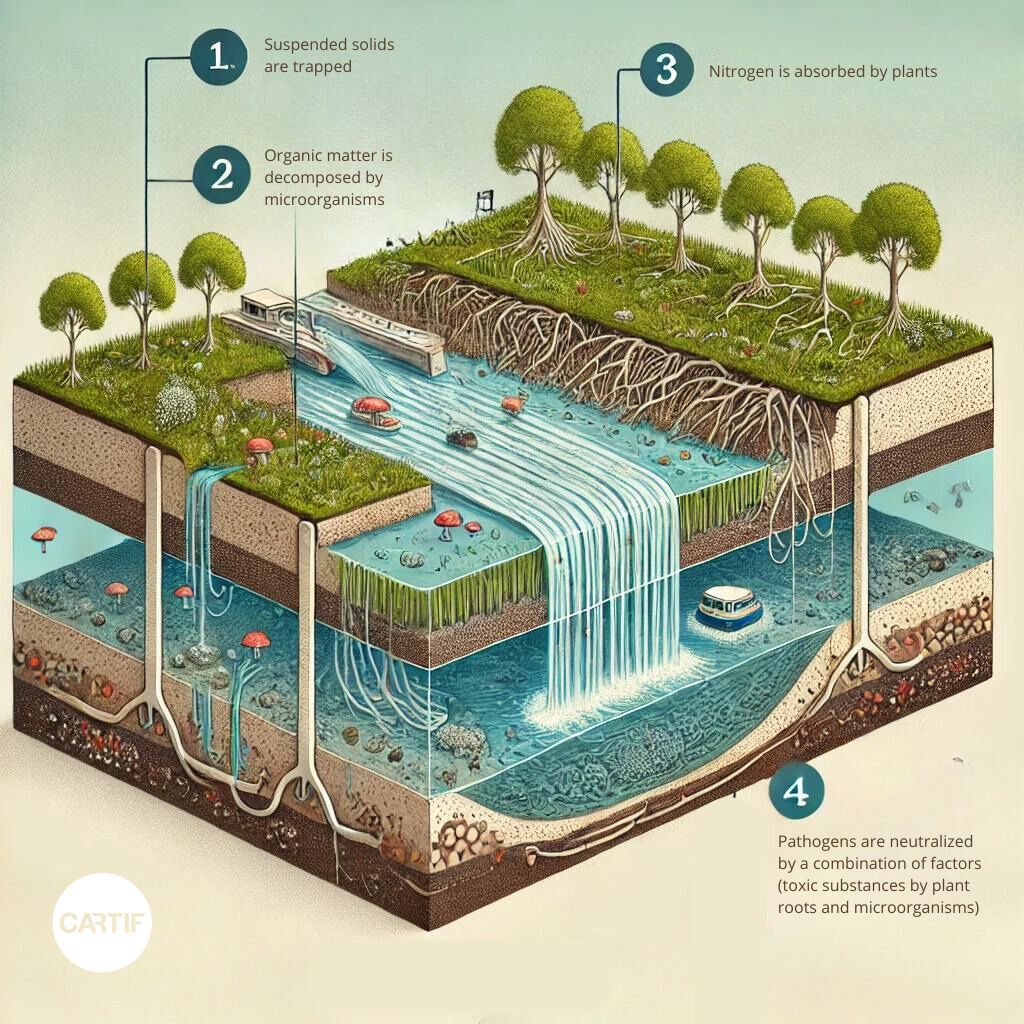
From challenge to opportunity: Transforming water management in the Mediterranean
One of the main challenges facing the Spanish Mediterranean basin is the scarcity of water resources, a critical factor for agricultural production in the region. Agriculture is a vital economic sector, dominated by irrigated crops such as vegetables and, currently, olive groves. The latter, traditionally rainfed, have been converted to irrigated crops due to the decrease in rainfall observed in recent decades. Both vegetables and olive groves require a constant and adequate water supply during their most demanding production phases, which intensifies the pressure on the limited water resources available in the area.
These irrigated crops are essential not only for food production but also for the local and national economy. For example, olive oil production in Andalusia is a fundamental pillar of the Mediterranean diet and represents a significant portion of Spain’s agri-food exports. In 2023, Spain exported 684,500 tons of olive oil, demonstrating the importance of this sector in international trade. The olive tree, although drought-resistant, has specific water requirements that are crucial for its development and production. Generally, olive trees require between 0.4 and 0.8 litres of water annually, depending on factors such as soil type, tree age, and climatic conditions. During critical periods, such as flowering and greening, water needs increase considerably, making adequate irrigation vital to ensure a quality harvest.

Furthermore, the quality of water used for irrigation is crucial. Water with high salinity or contaminants can negatively affect olive tree growth and the quality of the oil produced. Inadequate irrigation can lead to problems such as reduced yield and concentration of phenolic compounds, which are essential for the organoleptic properties of olive oil. Therefore, the use of quality water is not only vital for the health of the olive tree but also directly influences the quality of the final product, impacting the profitability of the crop.
However, the dependence of these crops on irrigation water poses various challenges for long-term sustainability, especially in the context of climate change that is exacerbating water scarcity. Efficient management of water resources thus becomes a priority to ensure the viability of olive oil production and other crops in the region.
The PRIMA NATMed project, coordinated by CARTIF, addresses water scarcity in the Mediterranean region through the implementation of Nature-based Solutions (NbS) in existing water infrastructures. Its innovative approach, based on the development and implementation of “Full-Water Cycle-NbS”, aims to optimize water management and improve related ecosystem services, while providing environmental, social, and economic benefits to Mediterranean communities.
One of NATMed´s key initiatives is the implementation and improvement of reclaimed wastewater treatment and storage systems for reuse in agriculture. This strategy provides an alternative water source that not only helps conserve natural water sources by reducing the overexploitation of ecosystems and water resources, but also provides farmers with a reliable source of irrigation, especially in water-scarce regions. Furthermore, the use of reclaimed water supplies nutrients to crops such as phosphorus and nitrogen, which reduces the need for chemical fertilizers and, consequently, decreases production costs, thus contributing to the economic and environmental sustainability of agriculture in the Mediterranean region.
An example of this strategy is the Spanish case study of the project located at the Center for New Water Technologies (CENTA) in Carrión de los Céspedes, Seville, where the combination of various artificial wetlands is being optimized with the aim of providing reclaimed water for irrigation of crops such as olive groves. These wetlands can be of different types, including:
- Hybrid configuration: Vertical Subsurface Flow + Horizontal Subsurface Flow.
- Vertical Subsurface Flow.
- Hybrid configuration: Vertical Subsurface Flow + Free Water Surface.
- Floating helophyte wetland.
- Aerated treatment wetland.
- French vertical flow wetland

Artificial wetlands are human-created ecosystems that emulate the natural water purification processes found in natural wetlands. These NbS leverage an intricate network of interactions between substrate, plants, and microorganisms to effectively purify wastewater. As water flows through the wetland, contaminants are removed through a series of complementary processes: suspended solids are trapped in the maze formed by the substrate and plant roots; organic matter is decomposed by a diverse community of microorganisms thriving in both aerobic and anaerobic conditions; nitrogen is absorbed by plants or transformed by specialized bacteria; phosphorus is captured by the substrate; and pathogens are neutralized by a combination of factors, including toxic substances produced by plant roots and the action of predatory microorganisms. This synergy of physical, chemical, and biological processes makes artificial wetlands an effective and sustainable solution for wastewater treatment.

Finally, the optimization of artificial wetlands developed in the NATMed project seeks to address the challenge of water scarcity in irrigated agriculture by providing alternative irrigation sources, which also reduce the need for chemical fertilizers, thus contributing to the environmental and economic sustainability of the region. As part of this approach, irrigation water quality parameters will be measured to ensure compliance with current regulations, in addition to analysing the nutrients provided to the soil, such as phosphorus and nitrogen, and their impact on crop production. A key aspect of the project is its potential for replicability in other locations to address the challenge of water scarcity in the Mediterranean region, which is being facilitated through engagement and training activities with relevant stakeholders in the area. These initiatives are fundamental to ensuring the long-term viability of agriculture in the region in the face of climate change and increasing water demand.